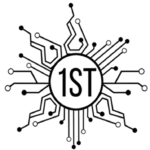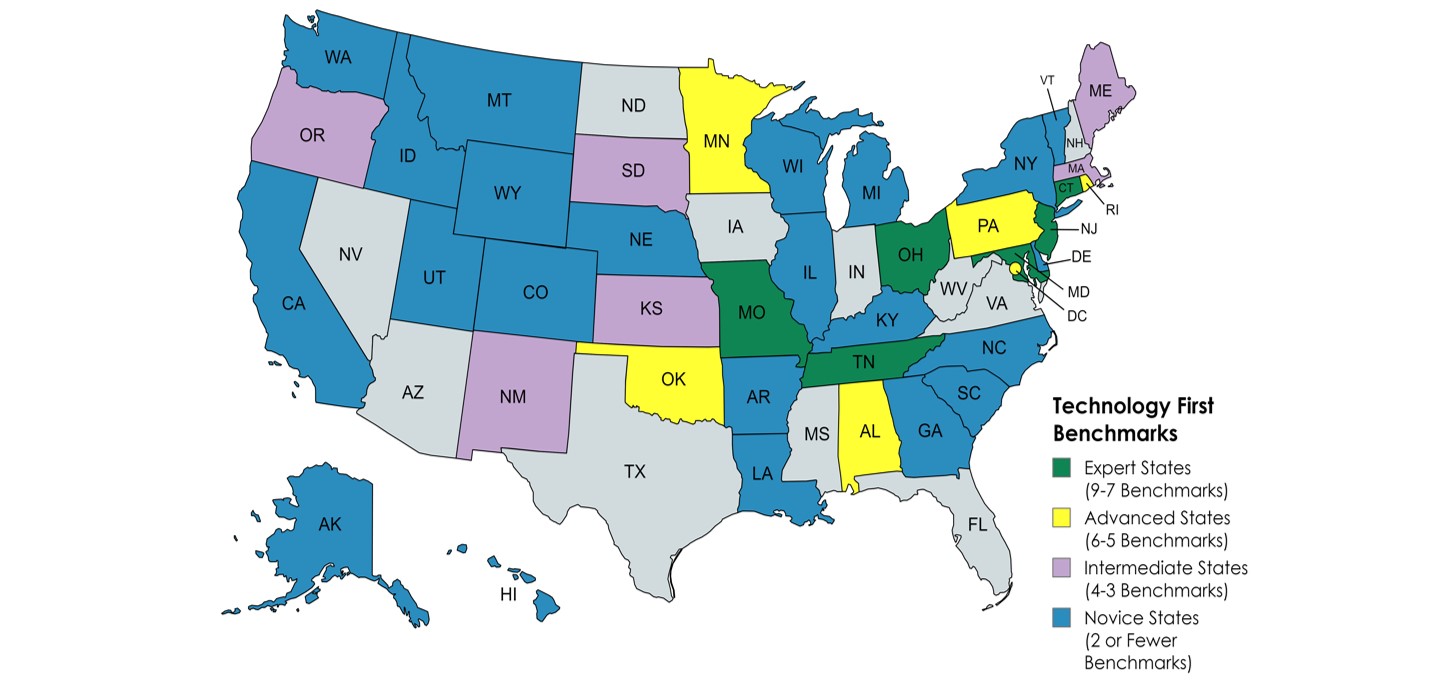Technology First
What is Technology First?

Technology First began as a movement but has transformed to a “framework for systems change where technology is considered first in the discussion of support options available to individuals and families through person-centered approaches to promote meaningful participation, social inclusion, self-determination and quality of life” (E.S., Tanis, 2019).
Why Technology First?
Technology First solves the most pressing challenges of our field today. Technology First:
- Promotes autonomy, self-direction, and community engagement
- Address the direct care workforce shortages
- Drives more efficient and effective practices –cost efficiency
Technology First System Change Benchmarks
The State of the States in Intellectual and Developmental Disabilities Project has been leading the research and data collection efforts on Technology First across the U.S. In 2023, forty states had Technology First related initiatives and/or legislation.

The evaluated Technology First Benchmarks in states include:
- Implementation or advancement of statewide legislation
- Modernization and harmonization of policies to support technology access
- Regularly convening a statewide group focused on technology access, services, and programs (ex. Technology First Council)
- Considerations of technology solutions as a requirement within the Individual Service Plan (ISP) or person-centered service plan
- Pilot programs for evaluating technology impact for people with I/DD
- Statewide evaluation of technology needs
- Statewide data collection plan or protocol for impact evaluation
- Statewide capacity building for providers and consumers
- Communications strategy for sharing Technology First enforcement of statewide legislation
Elements of Technology First State Initiatives
The Technology First systems change framework is adapted from Fixsen et al. (2013), conceptual model for implementation. The following lists the elements and sub-elements for Technology First systemic change.
- Statewide policy or initiative
- Set of core values
- Implementation team
- Resource allocation
- Active Implementation Frameworks
- Policy enable practice
- Sustainable resources
- Communication
- Leverage through collaborations
- Capacity building
- Fidelity and Data Driven Decision-Making
- Practitioner data
- Individual and family data
*Fixsen D. L., Blase, K., Metz, A., & Van Dyke, M. (2013). Statewide implementation of evidence-based practices. Exceptional Children, 79, 213–230. Fixsen, D. L., Naoom, S. F., Blase, K. A